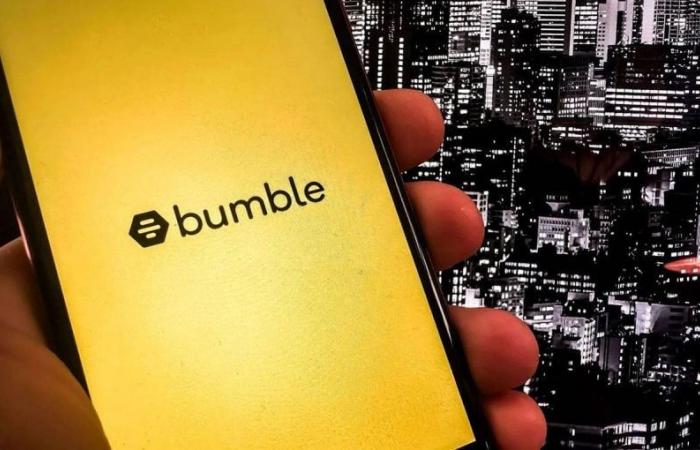Accused of being addictive, time-consuming and a source of disappointment, dating applications are no longer popular with users and investors. Their strategy to rekindle the flame? Explore the terrain of friendship.
Bumble has just launched the Bumble for Friends application in around ten countries, dedicated exclusively to friendly meetings.
“It is very successful because we sign up to form real friendships,” assured Lidiane Jones, boss of the American group, at the web Summit in Lisbon.
Bumble for Friends has some 730,000 active monthly users in the third quarter of 2024, a figure up 540% compared to last year, compared to an 8% decline in this indicator for Bumble over the same period, according to figures from the specialist firm Sensor Tower.
Bumble also acquired the Geneva application in May, focused on creating groups around common interests.
“This is just the beginning of our strategy to expand the spectrum of our group and help people form connections in a broader sense,” explained Lidiane Jones.
Its competitor Match Group (Tinder, Meetic) unveiled Yuzu in the United States in February, aimed at the Asian community which allows you to choose between friendly or romantic meetings. Since October in France, the group has also been testing a service dedicated to friendship on its dating application for seniors, DisonsDemain, which it intends to make permanent.
End of cycle
If these behemoths are investing in the world of companionship, it is because they are increasingly shunned by the public in their basic niche: romantic encounters.
“Tinder in particular is aimed at a young audience, between 18 and 22 years old”, i.e. generation Z, “an age group that prefers to meet people in person rather than online”, analyzes Seema Shah, manager at Sensor Tower.
The flame app has faced a continued decline in its number of active monthly users since 2021, a pandemic period when online dating was in full swing.
A disenchantment which also translates into the stock market. Match Group has seen more than $40 billion in valuation soar in three years. Bumble’s valuation has also melted like snow in the sun, going from more than $20 billion in 2021, at the time of its listing on the New York Stock Exchange, to around $1.3 billion. The group reported a net loss of $849 million in the third quarter and announced the layoff of a third of its workforce in February.
“We are reaching the end of a cycle. People now want more authenticity and direct contact,” analyzes Arthur Czubinski, 32, met during a dinner organized by the French application Timeleft.
From TripBFF to Timeleft
Because many start-ups have sniffed out the trend, such as WeRoad and TripBFF, which connect solo travelers, Wink or Plura (ex-Bloom), to find a friend based on their interests, or even Timeleft, launched a few years ago. a year and a half, which brings together six strangers every Wednesday during a dinner at a restaurant.
Users take “a personality test which includes around forty questions and serves to enrich our algorithm which creates groups”, explains its co-founder Maxime Barbier.
Arnaud Mundviller, 30, who lived in Montbéliard, in eastern France, signed up for Timeleft after a transfer to Paris, which “completely uprooted” him. “You arrive and you don’t know anyone. It’s not easy,” says this financial inspector.
To participate in a dinner, members of the application must pay 12.99 euros, or subscribe to a monthly subscription of around twenty euros to have access to all events.
And the formula appeals. “There are tables that are incredible,” says Mr. Czubinski, 32, a translator, who is at his twelfth Timeleft dinner in a few months.
The application orchestrates dinners in 280 cities across 62 countries and is getting closer to profitability, according to Maxime Barbier.
But the boom in these applications can be explained above all by the novelty factor for Seema Shah, who expresses doubts about their economic model.
“I doubt that people will agree to pay over time,” asserts the expert. It’s probably easier to make friends in your neighborhood while doing an activity or at your job, without spending money. »
Source: AFP
Accused of being addictive, time-consuming and a source of disappointment, dating applications are no longer popular with users and investors. Their strategy to rekindle the flame? Exploring the terrain of friendship. Bumble has just launched the Bumble for Friends application in around ten countries, dedicated exclusively to friendly encounters. “It…
- -





